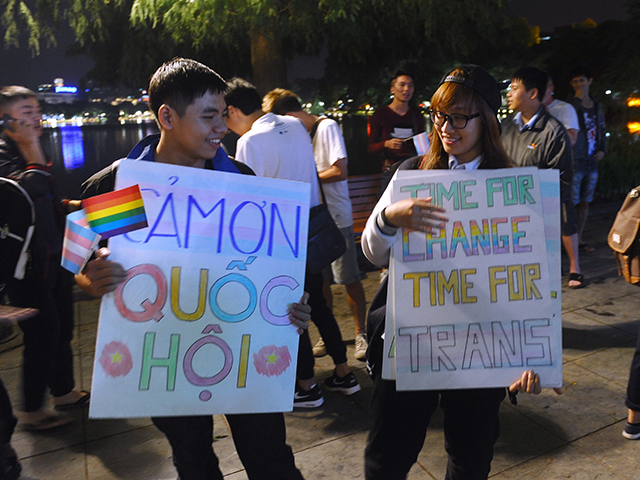Vietnamese lawmaker Nguyen Anh Tri on Monday introduced a proposal for a “Law on Gender Identity” to the Standing Committee of the National Assembly, the parliamentary body of the Communist country.
The law would enshrine “the right to be recognized as a new gender other than sex at birth, at the request of the citizen, and the right to choose a form of medical intervention” to change genders.
Tri, a medical doctor who was formerly director of Vietnam’s Central Institute of Hematology and Blood Transfusion, proposed legal recognition for the right of every unmarried citizen with a clean criminal record who is 18 years or older to change their gender. People who identify as transgender would have the right to choose any “medical intervention” they desire to change genders or change genders without any reassignment treatment at all.
The proposal included creating a “competent authority” that would process the paperwork for gender changes, and ensure the requests were sincere.
According to Vietnam’s Bao Moi News, the National Assembly was “seriously receptive” to the proposal.
Tri said that his Law on Gender Identity would “clearly demonstrate the high regard that the Socialist Republic of Vietnam holds for the values of humanity, and the spirit of protecting vulnerable communities, and ‘leaving no one behind’ in its policies.”
Vietnam currently has no body of laws pertaining to transsexualism and no solid scientific studies of gender identity among its population, despite the Ministry of Health having been ordered to conduct studies and propose legislation as far back as 2016.
Tri cautioned it would take time to study all the ramifications of his proposal and reconcile it with proposed laws on gender transition surgery that the government is already studying, so the Law on Gender Identity would not appear on the National Assembly’s agenda until next year at the earliest.
The National Assembly said the bill covered a “difficult and sensitive” matter, with many “practical” issues that need to be “clarified” before legislation can be put to a vote. Several Vietnamese government officials testified that at least ten major sections of the Vietnamese legal code would have to be revised to implement Tri’s proposed legal protections for transsexuals.
National Assembly Secretary Bui Van Cuong urged lawmakers not to delay their deliberations for too long, since “if we don’t soon build a legal corridor, there will be a lot of issues in both institutional and practical dimensions.”
The United Nations has been urging Vietnam for years to “promulgate the legal framework that will actually implement and enforce” the nominal recognition of transgender rights added to its civil code in 2015.
In December 2021, the U.N. outlined the “crippling” stigma and discrimination faced by transsexuals in Vietnam, reportedly prompting almost 40 percent of them to have “suicidal thoughts” or attempt suicide:
Our society poses many obstacles to transgender people living freely according to their gender identity. Their outward appearance may not correspond with their gender marker, meaning the assignation in official documents as female or male. So any time a transgender man or woman applies for a job, wants to get their driver’s licence, or has to go through any other simple administrative procedure, they face a barrier.
This, in turn, blocks their effective participation in society on an equal basis. For instance, one in three transgender women in Viet Nam has been denied rental accommodation or evicted. One transgender man said that he would like to finally get legally married to his long-term girlfriend, but cannot because his gender marker on his ID still says female.
These cases deny a person’s self-determined gender identity, by imposing restrictions that do not correspond with their gender identity or their lived reality within the community and society.
“Transgender people in Viet Nam are integral parts of families and communities, like any other family or community member, and yet they are prevented from participating in society in the same way and on equal footing,” the U.N. said.

COMMENTS
Please let us know if you're having issues with commenting.